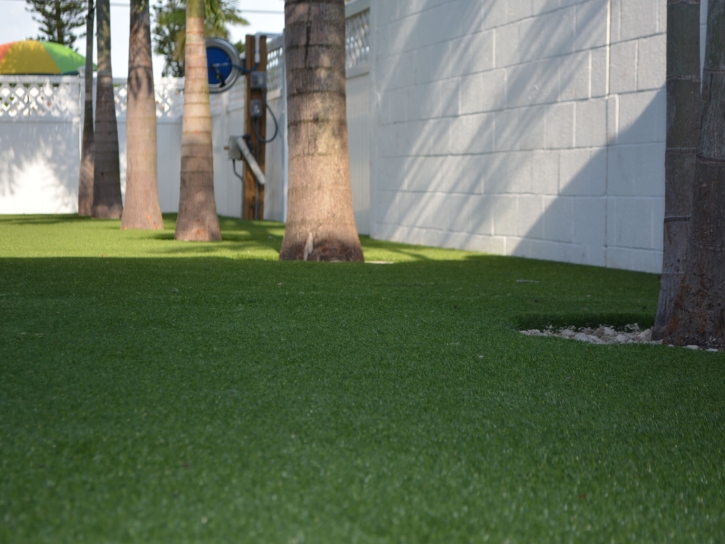Artificial Turf Installation District Heights, Maryland Landscape Design, Commercial Landscape
One good way of installing synthetic grass on the landscape with trees is to leave a circle around trees instead of covering the trunk's base. Fertilize a tree as needed, it will help you to water. Also, a debris drops and when leaves fall from a tree, you can work it into the circle rather than raking it our of the lawn.
Time is money, in District Heights, it may shock some people that a devoted organic landscaper would suggest that the artificial turf could have any benefits at all. For example, we all know that side yards are not easy difficult to landscape since the hot sun can fluctuate with too much shade. Lukas believes that synthetic turf is useable in certain situations. A few colorful potted plants and vines can complete the look. In such a situation artificial turf can provide a surface that takes no care, and saves untold amounts of valuable irrigation water, looks good year-round. You can even cover the complete area with a shade structure. A writer, maryland is a teacher, and the father of three girls, lukas Williams from District Heights. He is an avid gardener and believes that good growth starts with a supportive, raised on an organic farm, rich foundation - a philosophy that serves him well in both gardening and teaching.
One method is to remove the tree completely, but many home caretakers are reluctant to do that. You can dismiss the turf can grow, once the roots of large trees invade your lawn surface. Another answer is to stop trying to grow turf over the roots. Big trees can be a big annoyance when it comes to surface roots. Is to install the fake turf, less acknowledged choice, a third.
The results can be devastating. Where installing it over the roots of a tree was never an issue, synthetic turf has been used primarily on athletic fields in the past. They think that unlike mulch or natural grass, not only that, artificial turf can be installed right up to the tree's trunk. Due to its perdurable quality and the reality that it requires less maintenance than natural lawn, all the same, synthetic grass is popular with some home gardeners. Most companies believe that the fake grass can be placed directly over the roots of a large tree without harming them. Homeowners do not need to be too concerned about the consequences of large tree roots on artificial turf, but they must make sure that the tree roots are not damaged. Fake grass does not harm the roots of a big tree, but there are a few exceptions, in most cases.
As the manufacturer of the synthetic turf in the United States, let it "breath" and we highly recommend taking one extra step to keep the roots moisturized. Die and the trees dry up, tree roots are not able to receive nutrition and oxygen, without water and air access, after a couple of years and. synthetic grass does not work as mulch. It does stifle weed growth, can hurt the tree roots and but it insulates the roots.
But for trees that prosper in cold climates, dry seasons and the ground can get too tropical - especially during unusually hot. Subtropical trees and it can benefit tropical, if you choose the type of fake grass that can get very hot. Fake turf is desirable to install over large trees that grow best in warm states, such as the southern oak.

